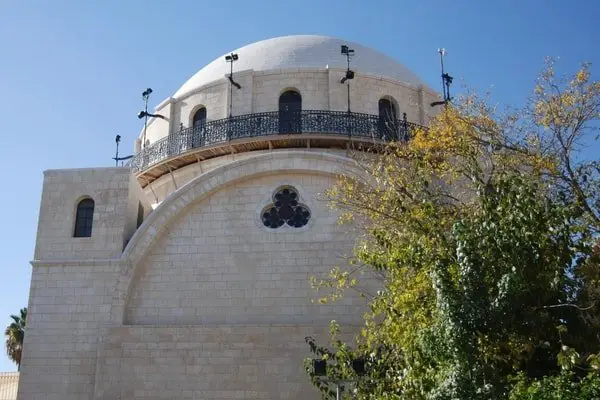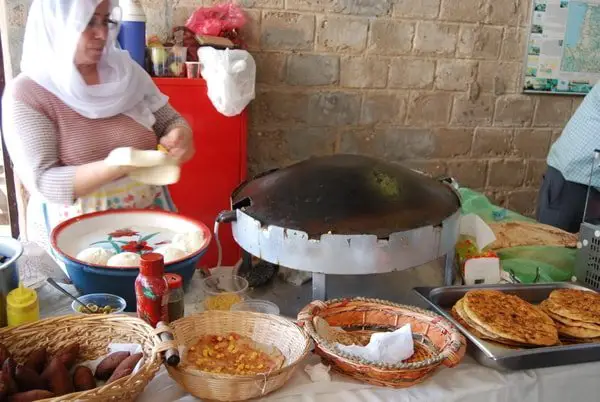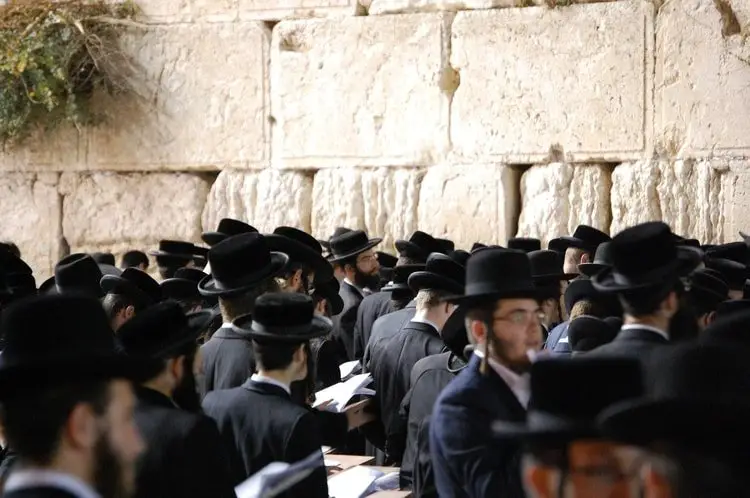Is a trip to Israel in your future? You need to know about Shabbat.
What is Shabbat?
Shabbat (Saturday in English) is the day of rest and worship in Judaism. It is similar to Sunday in Christianity, but with more restrictions. Since the vast majority of Israelis adhere to Judaism, the country follows the Jewish calendar and holidays. Even the non-religious observe parts of the ordinances and are considerate of Shabbat-keepers.
A typical work week in Israel is Sunday through Thursday, although children go to school Sunday through Friday. (Friday is a half-day) Saturday is the holy day, and much of the country grinds to a halt. Shabbat officially begins on sundown Friday evening, when three stars can be seen in the sky. It ends when the same event occurs Saturday evening.
What Happens on Shabbat?

The faithful attend synagogue and spend time resting. But even secular Jews tend to relax and treat the day as unique. Since religious Jews believe in many restrictions on Shabbat, such as no driving, spending money, or doing any work, most stores are closed, and many restaurants outside of busy metro areas like Tel Aviv aren’t open for business.
You will never find a birthday party or wedding being held on Friday night or Saturday-it would be a great insult to those following Judaism.
In the U.S., it’s common to go out for dinner Friday night. But in Israel, Friday evening is a time for families to get together, usually at home. You may be invited to a friend’s house for Shabbat dinner. A typical meal is substantial and always includes traditional challah bread, and frequently sweet Shabbat wine.
You should not drive in very religious areas, such as the Mea Shearim neighborhood in Jerusalem. Although in Arab cities, where a majority of Muslims have Friday as their holy day, Saturday is just a day to socialize and relax, with no spiritual connotations.
How Can it Affect Travelers?
Since many restaurants and attractions around the country shut down, travelers can find themselves stuck with nothing to do and no place to eat. Even public transportation in many cities and the national train system does not run on Shabbat. However, taxis and shared rides operate all over, and buses do run in Tel Aviv and Haifa.
On top of that, some destinations are busier than usual on Shabbat. Since non-observant Jews can be looking for outings themselves on Saturday, be careful of local activities. You might find yourself in a crowd of Israelis looking for some fun on their day off.

So, What Should Travelers Do?
Visitors to Israel need to plan their itineraries carefully. Either choose to be in a secular area during Shabbat, such as Tel Aviv, or visit a national park that will surely be open. Avoid Jerusalem on Friday evening and Saturday, when the city almost shuts down. (although observing those praying at the Western Wall on Saturday is quite a sight) If you must be in Jerusalem for the holy day, take a day trip to nearby Jericho, Bethlehem or the Dead Sea until sundown.
And choose destinations wisely, to avoid local traffic. Going to Caesarea National Park on Saturday is fine, but the Jerusalem Biblical Zoo may have long lines. Focus on touristic activities that residents may avoid. Always review the opening hours of attractions when you are in the planning stages of your trip.
Other Holidays with Schedules Like Shabbat
Since the Jewish calendar considers a day to begin at sundown on the prior evening, all major holidays have schedules similar to Shabbat. Businesses will close early before sunset and reopen on the night of the holiday or the following day. Holidays with restrictions include Purim (held in February/March), Pesach (usually April), Yom Hazikaron (May), Shavuot (May/June), Rosh Hashanah (September/October), Yom Kippur (September/October), Sukkot (September/October) and Simchat Torah (September/October).
Yom Kippur, the Day of Atonement, is the holiest and most limited calendar day of the year. Driving is not allowed throughout the country, and virtually every business will close. Even national radio and T.V. stations go dark. A popular pastime for the non-observant is hiking and biking on empty roads and freeways.

Ten Tips to Remember Regarding Shabbat
- DO NOT go to the grocery store on Friday morning. There will be crowds of people trying to buy the Shabbat dinner ingredients, especially those who have Friday off of work.
- DO be careful if you’re going out to dinner Friday night. Check operating hours carefully. Jewish friends may prefer to meet on another night.
- DO go to the non-kosher grocery store Saturday morning. The Russian grocery store Tiv Tam is open Saturday morning-and it is dead quiet. Avoid those horrible Friday crowds here.
- DO arrive before sundown if you’re enjoying dinner out on Saturday evening. Parking in urban areas will be a nightmare once Shabbat has ended. The whole country emerges from the break and swarms urban eateries and nightlife.
- DO NOT go to the mall on Saturday night. You will not believe how many people are there. It’s like Black Friday in the U.S., but every single Saturday evening. Shops will be crowded, and the food court will have long waits for meals and snacks.
- DO show respect to those worshipping on Shabbat. Refrain from driving near synagogues, and don’t play loud music. Since Jews must walk to their house of worship, you may be surprised to find one in an unexpected area.
- DO visit an Arab, Christian or Druze area since Saturday is not sacred for them. Druze village Daliyat el Carmel, and the primarily Arab cities of Nazareth and Akko have lively markets and a thriving restaurant scene on the day.
- DO pay attention to transportation on Shabbat. If you arrive by plane, know that the train system does not run until after sundown. Be prepared to use taxis or rent a car. Israel’s national airline, El Al, doesn’t offer flights that fly on Shabbat, either. (But several other carriers have flights operating daily.)
- DO go to the beach on Saturday, in warm weather months. Israelis love the beach, but there is plenty of space for everyone. It’s the perfect activity on a relaxing day with limited options.
- DO enjoy the peace Friday afternoon and Saturday, as the country slows down and breathes a collective sigh of relief at the end of the workweek. And don’t forget to tell everyone, “Shabbat Shalom,” which means peace on your Sabbath.
Follow these simple tips, and you will be prepared to cope with any schedule changes Shabbat may present. One of the benefits of travel is gaining a greater understanding that, although people of the world live and eat and observe things differently, we all have similar life experiences. Enjoy the change of pace as you sun on the shores of the Mediterranean, on a lazy Shabbat afternoon.

